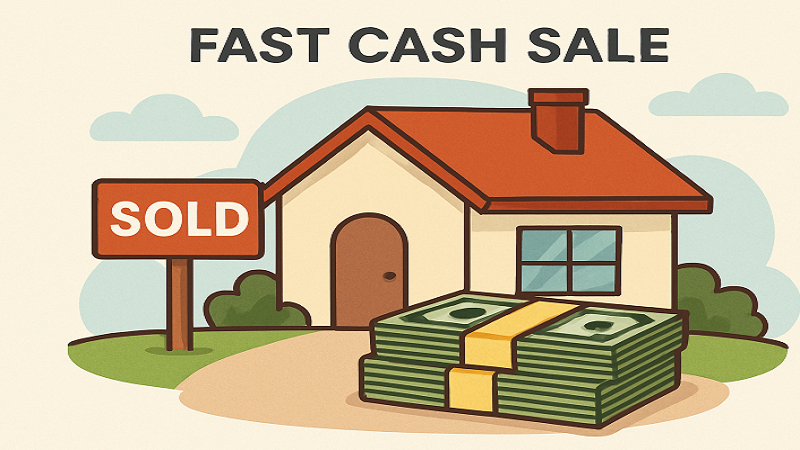Cash sales offer a quick, easy, and streamlined alternative to traditional real estate, especially for homeowners facing financial difficulties or property repairs. However, they may have lower offers and fewer negotiation opportunities. This guide provides a comprehensive overview of the pros and cons of selling a house for cash, enabling homeowners to make an informed decision.
What Is a Cash Home Sale?
Selling a home normally involves realtors, mortgage approvals, appraisals, and months on the market. A cash sale allows homeowners to transfer ownership directly to a buyer with immediate cash, streamlining the process. This skips many hurdles, making the deal faster and simpler. This option has become appealing in hot real estate markets, and homeowners are turning to experienced property buyers to expedite the process and avoid financing delays.
Major Benefits of a Cash Sale
Cash buyers can close deals quickly, as they don’t require lenders, making them ideal for tight deadlines. They often buy homes in their current condition, eliminating the need for repairs or updates. Eliminating mortgage approvals reduces the risk of a deal falling through, providing more certainty for the seller. This streamlines the transaction for homeowners. In today’s competitive market, these benefits have led many consumers to choose fast-moving sell instantly options to avoid lengthy sales timelines.
When Is Selling for Cash a Good Choice?
While any homeowner may consider a cash sale, certain situations make this route particularly attractive. Individuals facing foreclosure, relocating, or owning homes needing extensive repairs benefit most. Inherited or privacy-focused properties are also good candidates. Cash sales provide a quick, stress-free solution, especially in urgent cases.
Potential Downsides to Consider
Despite benefits, homeowners should consider drawbacks. Cash buyers usually expect discounts for quick, certain sales, often leading to lower offers than traditional sales. Limited negotiation may reduce offers and returns. Also, increased real estate scams emphasize the need for thorough due diligence.
Costs Involved With a Cash Sale
Cash sales offer homeowners the advantage of avoiding realtor commissions, potential closing costs, and discounted offers. Sellers may be responsible for title insurance or transfer taxes, and investors may factor in repair expenses or profit margins into their offers. Evaluating these costs and the convenience of a cash sale can help determine which approach aligns with financial and personal goals.
How Cash Offers Are Calculated
Cash buyers typically begin with your home’s current market value, then deduct estimated repair costs and their target profit to determine their offer. Competitive local conditions—like a hot housing market—may drive the offer higher, while extensive repairs required can lower it. Understanding this calculation can help sellers assess the fairness of the offer and inform negotiation strategies.
Is a Cash Sale Right For You?
Ultimately, the right decision depends on your needs. If you prioritize quick funds, a hassle-free process, or avoiding repairs, a cash sale can help. But if maximizing your sale price and attracting competing buyers matter more, a traditional sale might be better. Consulting local real estate pros and understanding your options can help you make an informed choice tailored to your situation.
Conclusion
Selling a home for cash offers a quick, convenient, and secure alternative to traditional real estate transactions, particularly for homeowners with urgent needs or inherited properties. However, sellers must consider potential downsides like lower offers and limited negotiation power.

